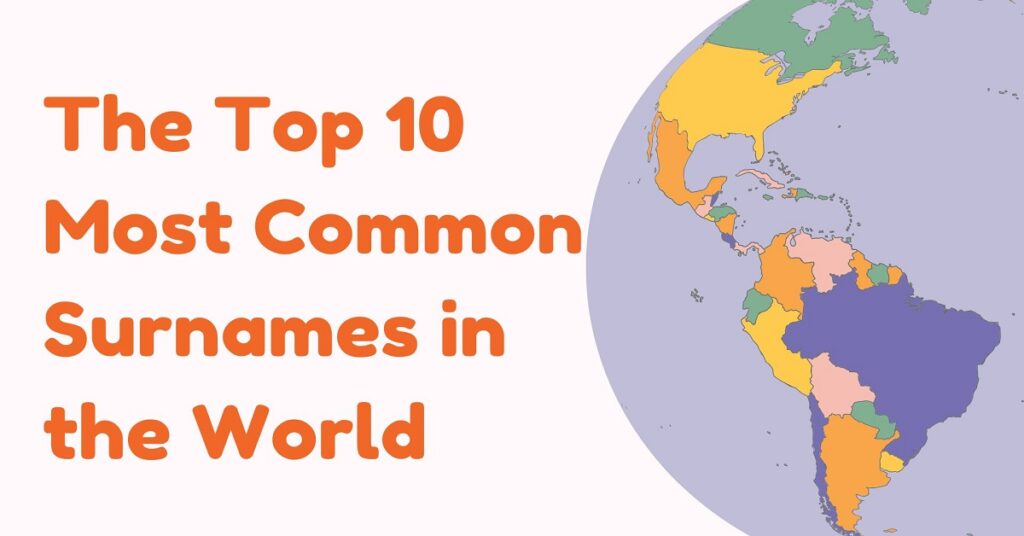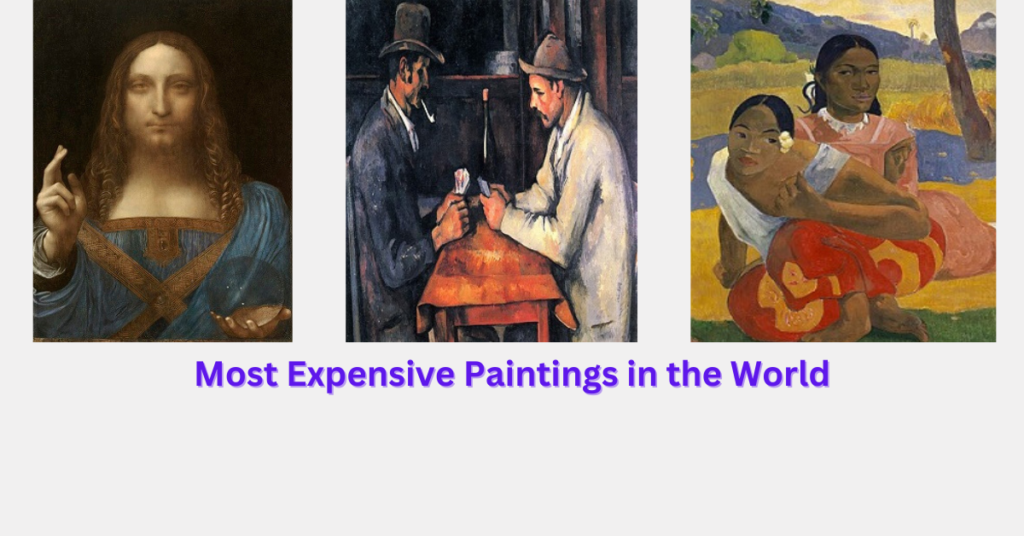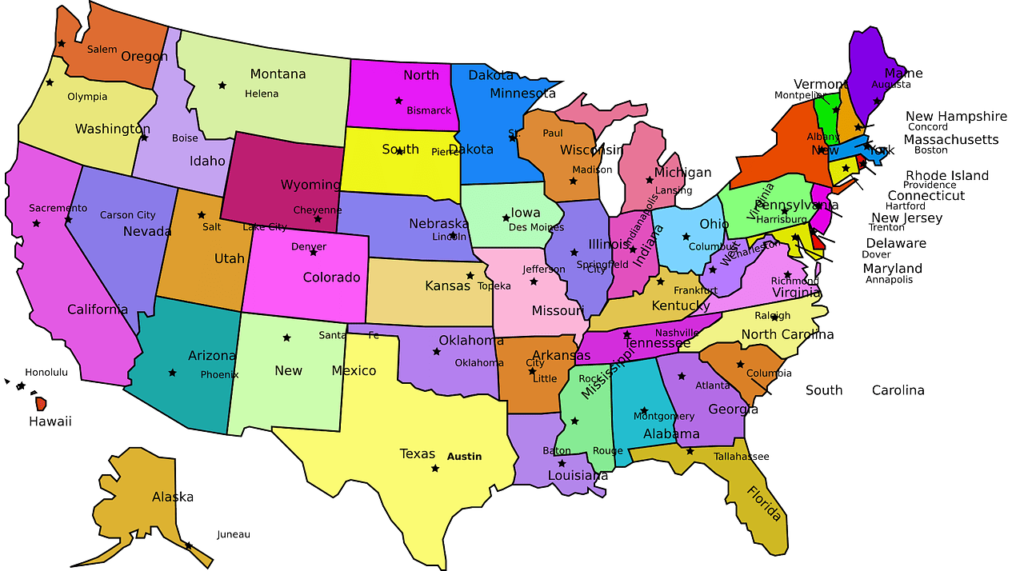A surname is a last name or family name that is added to every individual, it is a part of our name, some surnames are incredibly rare but some names are very most common surnames in the world. In this blog post, we will delve into the top 10 common surnames worldwide, exploring their origins, meanings, and the unique stories they tell about the people and societies that bear them.
Surnames, or family names, have undergone important transformations throughout history, shaped by cultural, social, and legal changes. Understanding this evolution provides insight into the complexities of identity and heritage.
Origins of Surnames
Topographical Names: Surnames frequently derive from geographical features or locations. For instance, surnames like “Hill” or “Brooks” indicate a connection to the land.
The Top 10 Most Common Surnames in the World
- Li (or Lee)
- Wang
- Zhang
- Devi
- García
- Nguyễn
- González
- Hernández
- Smith
- Kim
The name Li is Widely used across China and parts of Asia, some sources reported about 7.9 percent of the Chinese population 93 million people in China possess this family name. the meaning of Lee (also spelled Li) has several potential meanings depending on the characters used to spell it, including “profit,” “sharp,” or “upright.”
Wang is a another common surname in China over 100 million peoples have this surname, which means “king” in Mandarin. Wang surname has also gained traction in various non-Chinese speaking countries, notably in Korea, Vietnam, and Japan, where it has become an integral part of their cultural heritage.
Zhang (张)
Another common surname in China In the 1990 edition of the Guinness Book of Records, the Wang surname was recognized as the most common surname globally, boasting over 100 million individuals who share this name across the world. with this Zhang was listed by the People’s Republic of China’s National Citizen ID Information System as the third-most-common surname in mainland China (April 2007), with 87.50 million bearers. the name original meaning is meaning “archer” or “bowman.”
Devi is a most common surname in India, shared by approximately 70 million people. It derives from the Sanskrit word “devī,” meaning “goddess,” and holds cultural significance as an honorific term for women.In the United States, the Devi surname ranked 18,068th in 2010, with around 1,543 individuals bearing the name.
Gracia is a Very common surname in Spain, Portugal, Andorra, the Americas, and the Philippines, across Spanish-speaking countries. with approximately 3.32% of the population bearing this name. Additionally, it ranks as the second most common surname in Mexico. According to the 1990 United States Census, García was the 18th most frequently reported surname, representing 0.25% of the population. Its popularity has increased since then, rising to the eighth position by the year 2000. The name Garcia has its origin in Spanish and carries the meaning of Young or Young Bear.
Nguyễn is recognized as the most common family name in Vietnam, with estimates suggesting that around 40% of the Vietnamese population shares this surname. Its prevalence extends beyond Vietnam, as many Vietnamese have emigrated to various countries. Notably, Nguyễn ranks as the seventh most common family name in Australia and the 54th most common in France. In the United States, according to the 2000 Census, it holds the 57th position among family names and is notably the most common surname exclusively among Asians. Interestingly, the surname Nguyễn is derived from the Chinese character, meaning “musical instrument”.
González
González is a Spanish surname of Germanic origin, ranking as the second most common surname in Spain (2.08% of the population). It is widely popular in Latin America, being the most common surname in countries like Argentina, Chile, Venezuela, and Paraguay. In the United States, it is the 23rd most common surname and was ranked 13th as of 2017. The meaning of the name: Battle, war; Battle elf; Safe from harm.
Hernández
Hernández is a Spanish and Portuguese patronymic surname that emerged around the 15th century, meaning “son of Hernán,” “Hernando,” or “Fernando” (the Spanish form of the Germanic name Ferdinand). It is predominantly found in Mexico, the United States, Chile, Spain, and Cuba. Variants of the name include Fernández in Spanish and Fernandes in Portuguese.
Smith is an occupational surname originating from England and is the most common surname in the United Kingdom, the United States, Australia, and Canada, as well as the fifth most common in Ireland. It is particularly popular among individuals of English and Irish origin, As of the 2010 census, over 2.4 million Americans bore the surname Smith, and more than 500,000 people shared it in the United Kingdom. The surname’s widespread nature has led to it being described as “common to every village in England” and prevalent across various forms in many European countries.The name refers to a smith, originally deriving from smið or smiþ, the Old English term meaning one who works in metal.
Kim
Kim is the most common surname in Korea, with over 10.6 million people bearing the name in South Korea as of 2015, accounting for 21.5% of the population. Despite the uniform pronunciation, the surname is used by dozens of different family clans. The name is written as 김 (gim) in both North and South Korea, with the hanja 金 (geum) meaning ‘gold, metal, iron’. The most common romanization is Kim, used by 99.3% of the population, with rare variants including Gim, Ghim, and Kin.
The evolution of surnames reflects the dynamic interplay of history, culture, and societal change. From their origins as identifiers of lineage and occupation to their modern adaptations in a globalized world.







